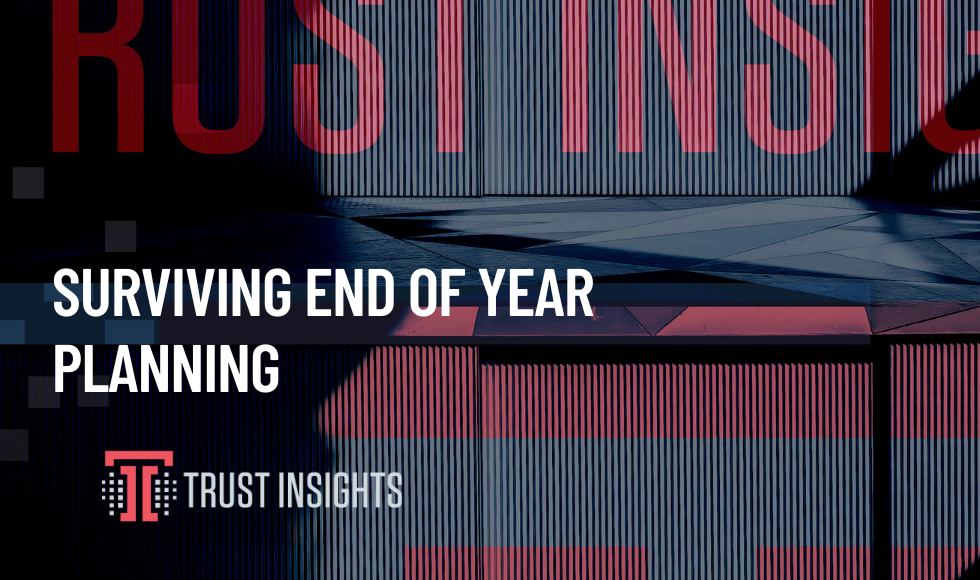This content was originally featured in the September 25th, 2024 newsletter found here: INBOX INSIGHTS, September 25, 2024: Surviving End of Year Planning, Measuring AI Brand Strength
Do I Need to Be an AI Expert?
The past few weeks, I’ve been talking about how to approach weaving AI into your end-of-year planning. And maybe you’re thinking, “But I still don’t know that much about AI!”
That’s ok!
One of the big misconceptions about new tech is that you need to immediately be an expert in it.
What you really need to be an expert in is critical thinking. Fads, trends, and tech will come and go. But being able to assess the situation in a grounded way will never go out of style.
Critical thinking includes:
- Questioning – ask questions. Lots of them. Turn over every rock and see what is underneath it. This might be the most important part of critical thinking. When you’re evaluating AI for your marketing plans, you need to ask a lot of questions. Questions like, “What happens if this doesn’t work?” or, “How will this look in our day-to-day?” or, “Will this impact our customers at all?”
- Acknowledging assumptions – coupled with questioning, you’re going to have assumptions about new things. Maybe it’s that your role will be replaced by AI if you introduce it into your planning. Acknowledge that assumption and explore them. Go back to your questions; do you have more that have come up? Keep asking!
- Making informed decisions – this is easier said than done. Even with all the fact-finding missions we go on and data we gather, we still lead with our emotions. The more information we collect and actually use, the more data-driven our decisions are. Again, go back to your current questions and assumptions. Make a list of what you know and what is still unknown. Do you have enough information to make a decision? Are you clear on what it is that you need?
- A healthy amount of skepticism – when exploring something new, keep your eyes and ears open. You don’t have to approach it like it won’t work. However, you should explore all the options and backup plans if it doesn’t. If you see something new, like generative AI, and don’t ask “what if” questions, you know you might be in trouble.
Additionally, you’ll want to make sure you have good process documentation. This is your foundation for anything you do in business. By making sure you and your team can complete things in a repeatable way, new tech becomes irrelevant. Your processes allow your people to be confident in what they are doing. If your people are confident, introducing new tech doesn’t become an issue. You can pick where it goes with little interruption.
Lastly, you want to make sure you’re open to change. Many teams are stuck in the “This is how we’ve always done it” mentality. It’s the “if it’s not broke, don’t fix it” mantra that stunts your growth. I get it, change is scary. And where there are dollars attached, it’s downright frightening. But go back to your processes. Find low-risk places to experiment. It doesn’t have to be all or nothing. Allow your people to be involved in the discussions and decisions.
You don’t have to be an expert in AI to evaluate it. You do have to be capable of critical thinking. That’s it. That’s the secret. Keep your wits about you, ask questions, and stay open to possibilities.
How are you using critical thinking to evaluate AI? Reach out and tell me, or come join the conversation in our free Slack Group, Analytics for Marketers.
– Katie Robbert, CEO







